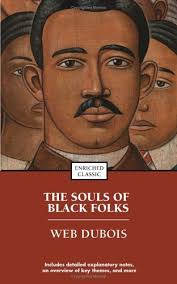Sing Ruby Siu
English 48B
January 16, 2009
Journal #4 W. E. B. Du Bois
QUOTE:
“How does it feel to be a problem?...It is a peculiar sensation, this double-consciousness, this sense of always looking at one’s self through the eyes of others, of measuring one’s soul by the tape of a world that looks on in amused contempt and pity” (896).
SUMMARY:
In W. E. B. Du Bois’ “The Souls of Black Folk,” he literally wrote out the reluctant question that was unlikely to be uttered by the Whites, and unwillingly to be answered by African Americans. The question is “How does it fell to be a problem”? Du Bois first requested the readers to face this question and then he answered it with a term he coined: double-consciousness. By this, he referred to the experience of scrutinizing his own identity in comparison to the standard of the Whites. He felt that African Americans were bearing two identities at once. When they came to see that their African part was not generally acknowledged by the white audience in the United States, their other self as an American came to judge their African souls through a pair of whitish eyes. All they can see and comment, of course shared by many whites, were contempt and pity casted on the African side.
RESPONSE:
How does it feel to be a problem? This is a question I felt neither confident to answer nor to give a lucid and penetrating experience that would arouse audience’s resonance. Basically, being born into a time when Chinese were allowed to wander in strange lands and girls are allowed to attend school, think freely and pursue their own careers, I feel lucky when I cannot instantly list out the uncomfortable zones that I think society owes me an explanation and change. I, like many of the others today, am able to ask, what is  my problem? However, battles along the racial lines, conflicts about social hierarchies, sexual orientation, military interest and stereotypes still induce many problems targeted at many people. We should be aware that the sense of being a problem is still latent in every societal aspect.
my problem? However, battles along the racial lines, conflicts about social hierarchies, sexual orientation, military interest and stereotypes still induce many problems targeted at many people. We should be aware that the sense of being a problem is still latent in every societal aspect.
Yet, I personally came across the experience of double-consciousness. That is when I enter young adult stage; I felt it uneasy to embody both the conventional values expected by my family while achieving what I really meant to be. For instance, my traditional grandparents would expect to see me married and have children; while the zealous dream burning inside me wanted to be a vagabond artist. The contrasting characters, both uncompromising—fight for their own freedom. Sometimes, it was most dangerous and frustrating when the responsible side of me was so strong that I could not even take decision according to my own view. Therefore, I have struggled between the conventional tape set by the traditional Chinese society and my true spirit. I look through myself through their eyes and standard; sometimes I really agree with them and find it bizarre that I give up my own interest. It is not particularly as painful as what Du Bois and Washington were going through. It was not as peculiar as I was at the margin just like an outcast or alien of the society. It is to me a contemplative and reflective little space in heart that always reminds me the difference between me and the expectation. I agree with Washington and Du Bois that this double-consciousness is not destructive, but I concede that there are times I feel lost and contradictory.



20/20 " Therefore, I have struggled between the conventional tape set by the traditional Chinese society and my true spirit." That's double-consciousness indeed.
ReplyDelete